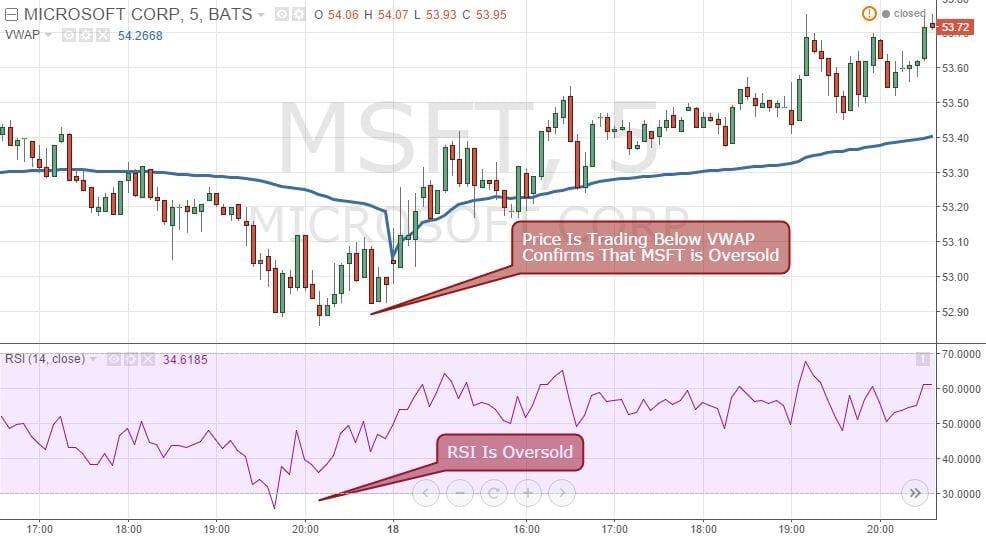Contents:


A subfinancial accounting vs managerial accounting of the accounts receivable process, receivables management primarily refers to the collections process – communications with those who owe the company money, and collection activities undertaken to secure payment. A FMS is the software and processes used to manage income, expenses, and assets in an organization. The field of finance can be broken down to hone in on the specific types of parties involved, including personal finance, corporate finance, and public finance.
How To Get A Bachelor’s Degree in Accounting – Forbes Advisor – Forbes
How To Get A Bachelor’s Degree in Accounting – Forbes Advisor.
Posted: Wed, 01 Feb 2023 08:00:00 GMT [source]
While both these types of accounting deal with numbers, managerial accounting is strictly for internal use. Financial accounting, on the other hand, focuses primarily on the collection of accounting information to create financial statements. Financial accounting must conform to certain standards, in accordance with GAAP as a requisite for maintaining their publicly traded status. Most other companies in the U.S. conform to GAAP in order to meet debt covenants often required by financial institutions offering lines of credit. Because managerial accounting is not for external users, it can be modified to meet the needs of its intended users. Financial accounting requires that financial statements be issued following the end of an accounting period.
Accounts Receivable (AR) Management
Managerial accounting is the practice of identifying, measuring, analyzing, interpreting, and communicating financial information to managers for the pursuit of an organization’s goals. Charlene Rhinehart is a CPA , CFE, chair of an Illinois CPA Society committee, and has a degree in accounting and finance from DePaul University. If you have the patience and attentiveness necessary to study data for patterns or trends, this might be a career for you. Data analysis requires examining the details and from your findings, interpreting results for the purpose of presentation. You can get customized views of various reports generated in TallyPrime, based on your preference, and save the views so each time when you open these reports, you can see them in the same view.
A statement of cash flow extracts only items that impact cash, allowing for greater analysis of how money is specifically be used. A statement of cash flow reports how a company used cash during a specific period. The report is broken into sections that summarize the operating, financing, and investing sources and uses. Financial accounting guidance dictates when transactions are to be recorded, though there is often little to no flexibility in the amount of cash to be reported per transaction.
Finance and accounting operate on different levels of the asset management spectrum. Accounting provides a snapshot of an organization’s financial situation using past and present transactional data, while finance is inherently forward-looking; all value comes from the future. On the other hand, financial accounting is mandatory as per the statutory requirement. It needs to be prepared because, legally, every company is bound to disclose the right and accurate information to the potential & existing investors and governments.
How Financial Accounting Works
This differs from financial accounting, which produces and disseminates official financial statements for public consumption that conform to prevailing accounting standards. While you’re likely using accounting software in order to track your financial accounting activity accurately, you’ll probably need to use other resources such as budgeting or planning tools in managerial accounting. Remember, the facts contained in financial statements often play a role in managerial accounting, but estimates have no role in financial accounting. The information contained in financial statements must be accurate and is derived from the various financial transactions entered throughout the specified accounting period. Reporting is handled very differently in managerial and financial accounting.
- The sum of these rules is referred to as generally accepted accounting principles .
- Top 12 Limitations Of Financial AccountingFinancial accounting limitations are those factors that can have an adverse impact on financial statement users if they rely solely on financial accounts.
- Basic accounting system functions or ERP finance software modules include general ledger, accounts payable, and accounts receivable.
- Managerial accounting focuses on detailed reports like profits by product, product line, customer and geographic region.
- This type of accounting uses data to help provide leaders with insight for strategic financial planning that aligns with that organization’s goals and business objectives.
“All of the big four accounting firms have Bentley University on their list of key recruiting schools,” shares Sanderson. Management accounting is a subsection of accounting, so you will need to be very comfortable with numbers and proficient in basic skills. Accounts payable is the business function that tracks and manages the amounts owed to suppliers, subcontractors, lenders, and other outside parties. Payable typically starts with recognition of the purchase invoice and ends with payment.
Is Financial Accounting the Same as Managerial Accounting?
This formula looks at what a company owns , what it owes , and the residual that belongs to shareholders (owner’s equity). And it must balance out—the assets on the left should equal the claims against those assets on the other side. It’s a fundamental means for determining whether a company’s financial records accurately reflect the transactions carried out over a period of time. Financial accounting reports are distributed inside and outside of a business and are governed by GAAP and IFRS. The external publication of financial statement makes it very necessary to follow regulation to provide correct information.
Although financial accounting and managerial accounting complement each other in an organization’s financial strategy, professionals considering one of these careers should understand the differences between the disciplines. Managerial accounting focuses on an organization’s internal financial processes, while financial accounting focuses on an organization’s external financial processes. Financial accountants produce documents such as income statements and balance sheets, which external parties use. The statements document an organization’s financial performance over a period of time, as well as its overall financial health. Agencies such as the Securities and Exchange Commission regulate the work of financial accountants, who produce these statements.
Does Managerial Accounting Follow GAAP?
Inventory turnover analysis measures the inventory a company sells and replaces within a set period. Some organizations may move AR to an AR aging report after 30 days, while others give customers 90 days or more. Companies typically don’t hold past due AR because it can affect their bottom line and is a credit risk. Ideally, having at least five years of professional experience will help you advance into management positions in finance; however, you can get certified with a minimum of two years of experience. This is particularly true of upper-level management jobs or senior-level positions in a company like CFO or corporate controller.

The median annual salary for financial accountants is about $55,500, according to July 2020 data from PayScale. The median annual salary for managerial accountants is about $72,100, according to August 2020 data from PayScale. Compliance with established formats is vital for financial accountants, who must prepare reports for shareholders and potential investors as well as executives. Managerial accountants, however, generally prepare their reports for internal audiences.
What does a managerial accountant do?
This principle dictates the aspects where technical accounting should be used as opposed to personal opinion. For U.S. public companies, businesses are required to perform financial accounting in accordance with generally accepted accounting principles . Nonprofits, corporations, and small businesses use financial accountants to prepare their books and records and generate their financial reports. Through a review of outstanding receivables, managerial accountants can indicate to appropriate department managers if certain customers are becoming credit risks. If a customer routinely pays late, management may reconsider doing any future business on credit with that customer.
- Revenue management seeks to increase revenue by accurately predicting demand and consumer behavior – and then optimizing products, pricing, promotion, and placement to achieve the best possible financial results.
- The statements document an organization’s financial performance over a period of time, as well as its overall financial health.
- Managerial accounting encompasses many facets of accounting aimed at improving the quality of information delivered to management about business operation metrics.
- In the other example, the utility expense would have been recorded in August .
Professor SandersonFor example, let’s say you’re in charge of running the marketing department for your company. Understanding accounting will also help you analyze your profits and make informed strategic business plans. Financial accounting requires that records be kept with considerable precision, which is needed to prove that the financial statements are correct. Outside auditors rely on this information when auditing a firm’s financial statements.
These reports are only created for internal purposes and not for external stakeholders. These reports don’t have any structured format, but they provide valuable information that helps the management get a snapshot of what’s going on in the business and where they can go short. Cash Flow From Investing ActivitiesCash flow from investing activities refer to the money acquired or spent on the purchase or disposal of the fixed assets for the business purpose.
Considerable precision is needed to prove that financial records are correct. Financial accounting relies on this accurate data for reporting, while managerial accounting frequently deals with estimates opposed to proven facts. Financial accounting looks at the entire business while managerial accounting reports at a more detailed level.
How To Become An Investment Banker – Forbes Advisor INDIA – Forbes
How To Become An Investment Banker – Forbes Advisor INDIA.
Posted: Tue, 02 May 2023 20:05:00 GMT [source]
The Certified Management Accountant designation is more demonstrative of an ability to perform internal management functions than financial accounting. The Revenue Recognition Principle states that revenue should be recognized when it has been earned. This principle dictates how much revenue should be recorded, the timing of when that revenue is reported, and circumstances in which revenue should not be reflected within a set of financial statements.
All publicly held companies are required to complete their financial statements in accordance with GAAP as a requisite for maintaining their publicly traded status. Financial accountants are also subject to compliance with government rules and regulations, such as the generally accepted accounting principles , whereas managerial accountants are not. Maintenance of records and preparation of the periodical financial statements, as per the financial accounting system is compulsory. The main objective of financial accounting is to ascertain the results of business operations of the business, in terms of profit or loss for the period. Also, it tends to provide information relating to the company’s financial standing on the last day of the accounting period.
The goal of management accounting is to aid decision-makers by providing accurate information about a business’s financial operations. Free cash flows is arguably the most important one, which examines how much money a company has to distribute to investors, or reinvest, after all expenses have been covered. It’s a strong indicator of profitability, and can be used to make present-day investment decisions based on an expectation of future payoff. For example, if cash is withdrawn from the bank in the company’s book under the double-entry system, both cash and bank would be affected. Financial statements are due at the end of an accounting period, while managerial reports may be issued more frequently, to provide managers with relevant information they can act on immediately.
Bookkeeping Vs. Accounting: Which Path Is Right For You? – Forbes
Bookkeeping Vs. Accounting: Which Path Is Right For You?.
Posted: Wed, 30 Nov 2022 08:00:00 GMT [source]
Consider the Managerial Accounting Fundamentals course offered by University of Virginia. It covers topics in managerial accounting, cost volume analysis, cost allocation, and more. After obtaining a degree, build your skills while gaining experience to prepare yourself for future employment or certification. Some management accountants advance from entry or mid-level positions like auditing clerk, bookkeeper, or assistant controller. Financial management software can be part of a company’s enterprise resource planning system, which consolidates financial and operational data and provides teams with a comprehensive view into the business. Standalone financial applications can also be combined to create an end-to-end financial management system.
Financial accounting reports are typically generalized and concise, and information is less revealing because they are available to outside parties. In the U.S., the financial accounting reports of a company are governed by the Generally Accepted Accounting Principles as adopted by the U.S. Financial accounting focuses on statements based on financial information, to be shared with both internal and external shareholders. These financial statements are due at the end of an accounting period, typically once a year, although they may be compiled more frequently. Investors and creditors often use financial statements to create forecasts of their own.
This is not normally the case with managerial accounting as there are many reasons to do things a specific way for each company. For example, you might want to internally report lower bonuses so as to not anger mid-to-lower level employees who might want to peruse the report. The biggest practical difference between financial accounting and managerial accounting relates to their legal status.
